
The Phnom Penh Rental Survey: A Study on Poor Rental Housing in Phnom Penh
Publication Year: 2014 / Sources: Sahmakum Teang Tnaut (STT)In the current development and economic climate of Cambodia, urbanization plays a major role. The promise of employment, savings, and a secure future has driven rates of urbanization to be amongst the highest in the South-East Asia region.The speed of growth in Phnom Penh has brought increased urban poverty, as scarcity of land and appropriate housing and urban infrastructure pushes residents into precarious housing situations.
Download: English | Khmer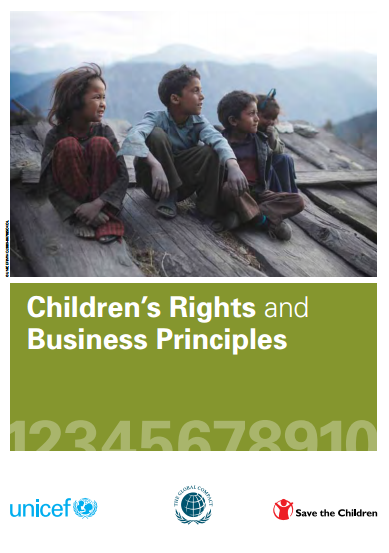
Children’s Rights and Business Principles
Publication Year: -- / Sources: Save the Children, UNICEF and the Global CompactChildren under 18 years old account for almost one third of the world’s population. In many countries, children and youth make up almost one half of the national population. It is inevitable that business, whether small or large, will interact with and have an effect on the lives of children both directly and indirectly.
Download: English | Khmer
Human Development Report 2015: Cambodia
Publication Year: 2015 / Sources: United Nations Development Programme (UNDP)Cambodia’s Human Development Index value for 2014 is 0.555— which put the country in the medium human development category—positioning it at 143 out of 188 countries and territories. Between 1990 and 2014, Cambodia’s HDI value increased from 0.364 to 0.555, an increase of 52.4 percent or an average annual increase of about 1.77 percent.
Download: English | Khmer
Human Development Report 2015
Publication Year: 2015 / Sources: United Nations Development Programme (UNDP)Human development is about enlarging human choices—focusing on the richness of human lives rather than simply the richness of economies (see infographic). Critical to this process is work, which engages people all over the world in different ways and takes up a major part of their lives.
Download: English | Khmer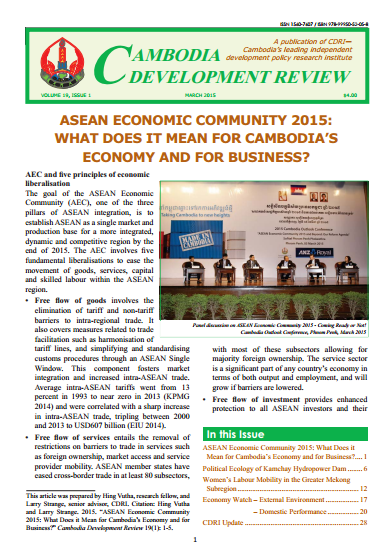
ASEAN Economic Community 2015: What Does it Mean for Cambodia’s Economy and for Business?
Publication Year: 2015 / Sources: Cambodia Development Resource Institute (CDRI)The goal of the ASEAN Economic Community (AEC), one of the three pillars of ASEAN integration, is to establish ASEAN as a single market and production base for a more integrated, dynamic and competitive region by the end of 2015.
Download: English | Khmer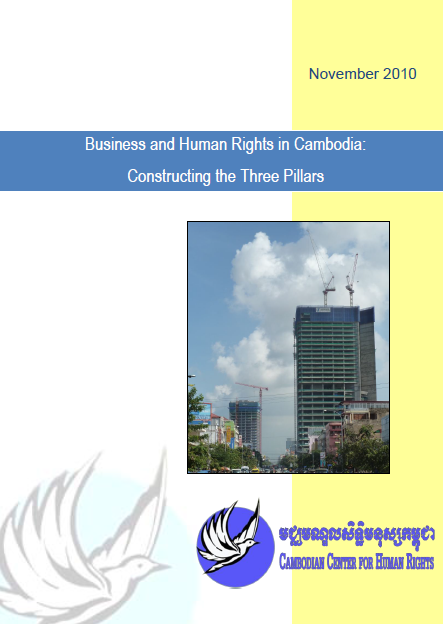
Business and Human Rights in Cambodia: Constructing the Three Pillars
Publication Year: 2010 / Sources: Cambodian Center for Human RightsThis report analyzes business and human rights in Cambodia through Ruggie’s framework and does so by focusing on land rights, labor rights, and the freedoms of expression, assembly and association in particular. These are the most critical rights issues relevant to businesses in the Cambodian context.
Download: English | Khmer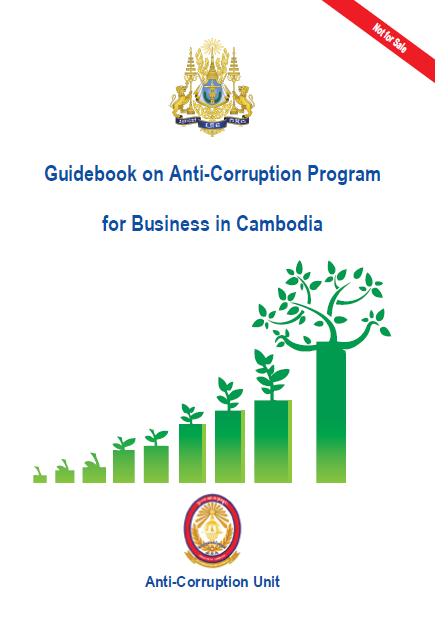
Guidebook on Anti-Corruption Program for Business in Cambodia
Publication Year: 2015 / Sources: Anti-Corruption UnitBoth in the Cambodian and globalization context, increasing private sector players understand clearly their roles and responsibilities and they have even actively involved in initiatives to ensure that their businesses are conducted with integrity, transparency and accountability.
Download: English | Khmer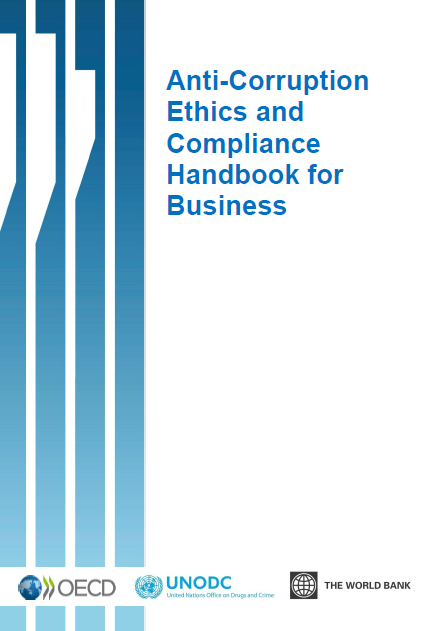
Anti-Corruption Ethics and Compliance Handbook for Business
Publication Year: 2013 / Sources: Organisation for Economic Co-operation and Development (OECD), United Nations Office on Drugs and Crime (UNODC), and the World BankThe primary objective of the corruption risk assessment is to better understand the risk exposure so that informed risk management decisions may be taken. A structured approach for how enterprises could conduct an anti corruption risk assessment is outlined in the steps below. Readers should note that each enterprise’s own risk assessment exercise is unique, depending on that enterprise’s industry, size, location, etc.
Download: English | Khmer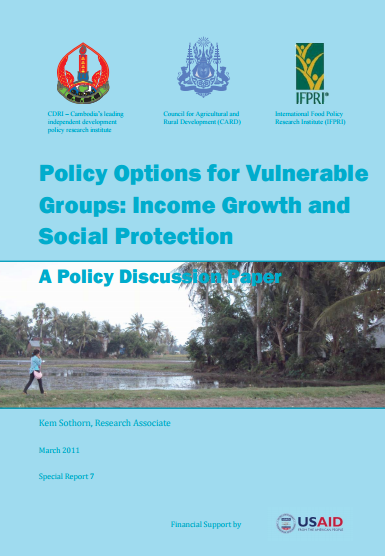
Policy Options for Vulnerable Groups: Income Growth and Social Protection
Publication Year: 2011 / Sources: Cambodia Development Resource Institute (CDRI)This article provides an overview of the interaction between growth, poverty, vulnerability and social protection, building on existing literature and recent data and statistics. Specifically, this study: (1) identifies vulnerable groups and causes of vulnerability, (2) reviews the existing social protection policy and activities being undertaken by government and its partners, (3) discusses the eff ectiveness of the existing social protection programme, and (4) sets out policy options for vulnerable groups in terms of income growth and social protection.
Download: English | Khmer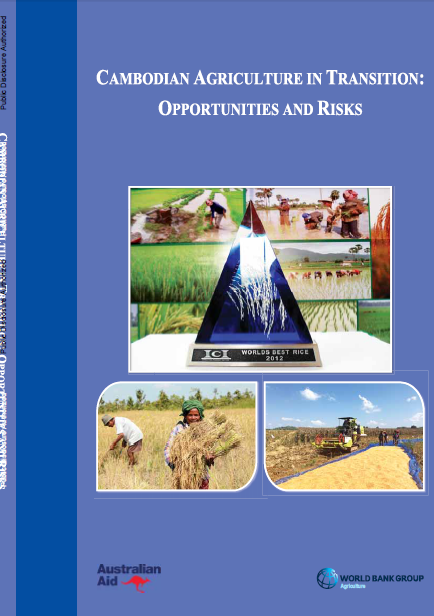
Cambodian Agriculture in Transition: Opportunities and Risks
Publication Year: 2015 / Sources: The World BankThis report seeks to understand the successes, challenges and opportunities of Cambodia’s agricultural transformation over the past decade to derive lessons and insights on how to maintain future agricultural growth, and particularly on the government’s role in facilitating it.
Download: English | Khmer